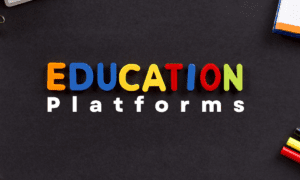In today’s rapidly evolving world, the field of education is undergoing a profound transformation. With advancements in technology and changes in societal needs, traditional modes of learning are being supplemented, and in some cases, replaced by online education platforms. This article delves into the future of education, focusing on the rise of online learning and its implications for learners and educators alike.
Introduction: The Changing Landscape of Education
Education, once confined to physical classrooms and textbooks, is now expanding beyond traditional boundaries. The rise of the internet and digital technologies has paved the way for a new era of learning, where knowledge is accessible anytime, anywhere. Online learning, also known as e-learning, is gaining traction as a viable alternative to traditional education, offering flexibility, affordability, and scalability.
Traditional Education vs. Online Learning
Advantages of Traditional Education
Traditional education has long been the cornerstone of learning, offering face-to-face interaction with instructors and peers. It provides a structured environment conducive to learning and fosters interpersonal skills through group activities and discussions. Additionally, traditional institutions often carry a sense of prestige and accreditation, which can enhance the value of a degree.
Advantages of Online Learning
On the other hand, online private schools offer unparalleled flexibility and accessibility. Learners can access course materials and lectures remotely, allowing them to study at their own pace and around their own schedule. This flexibility is particularly beneficial for parents who want the best education for their children, without compromising their values. Moreover, online courses are often more affordable than their traditional counterparts, making education more accessible to a wider audience.
The Rise of Online Learning Platforms
The proliferation of online learning platforms has democratised education, making it accessible to anyone with an internet connection. These platforms offer a diverse range of courses spanning various subjects, from computer science to art history. Learners can choose from a plethora of options tailored to their interests and career goals, allowing for a more personalized learning experience.
Accessibility and Convenience
One of the key advantages of online learning is its accessibility. Learners can access course materials from anywhere in the world, eliminating the need for physical attendance. This accessibility is particularly beneficial for parents who wish to enrol their children in extra-curricular activities, travelling, individuals living in remote areas, those unable to attend traditional brick-and-mortar institutions due to various constraints, or simply to gain flexibility with their child’s education!
Diverse Learning Opportunities
Online learning platforms cater to a diverse range of learners, including those with disabilities or special needs. Through features such as closed captioning, text-to-speech functionality, and interactive simulations, these platforms accommodate different learning styles and preferences. Additionally, Online Independent School courses often incorporate multimedia elements such as videos, animations, and virtual labs, enhancing the overall learning experience.
Technology’s Role in Shaping Education
Technology plays a pivotal role in shaping the future of education, enabling innovative teaching methods and learning experiences.
Challenges and Opportunities in Online Education
While online education offers numerous benefits, it also presents challenges that must be addressed to ensure equitable access and quality learning experiences for all.
Digital Divide and Accessibility Issues
One of the primary challenges of online education is the digital divide, which refers to the gap between those who have access to digital technologies and those who do not. Inequities in internet access, device availability, and digital literacy can hinder participation in online courses, exacerbating existing disparities in education. Addressing these accessibility issues requires concerted efforts from policymakers, educators, and technology providers to bridge the digital divide and ensure equal access to educational opportunities.
Personalised Learning and Customisation
Personalized learning is a key aspect of online education, allowing learners to tailor their learning experience to their individual needs and preferences. However, implementing effective personalized learning strategies requires careful planning and consideration of factors such as student demographics, learning objectives, and assessment methods. Educators must strike a balance between standardization and customization to ensure that personalized learning experiences are both effective and equitable.
Future Trends in Online Education
Looking ahead, several trends are poised to shape the future of online education and redefine the way we teach and learn.
Hybrid Learning Models
Hybrid learning models, which combine online and face-to-face instruction, are gaining popularity as institutions seek to maximize flexibility and engagement. These models leverage the strengths of both traditional and online learning modalities, allowing for greater customization and adaptability. By integrating online components into traditional classrooms, educators can enhance the learning experience and cater to diverse student needs.
Lifelong Learning and Continuous Education
In an era of rapid technological advancement and evolving job markets, lifelong learning has become essential for career success and personal development. Online education enables individuals to acquire new skills and knowledge throughout their lives, empowering them to adapt to changing circumstances and pursue lifelong learning opportunities. Continuous education platforms offer flexible, on-demand courses that allow learners to upskill, reskill, and stay competitive in today’s dynamic workforce.
Conclusion: Embracing the Future of Education
The future of education is bright, with online learning poised to play a central role in shaping the way we teach and learn. By harnessing the power of technology and embracing innovative pedagogical approaches, we can create a more inclusive, accessible, and personalised education system that empowers learners to thrive in the 21st century and beyond.



































